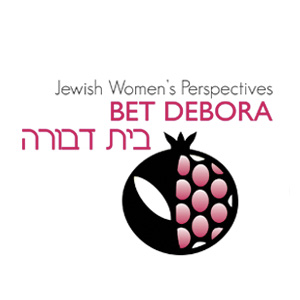AVIVA-Berlin >
Jüdisches Leben
AVIVA-BERLIN.de 4/18/5786 -
Beitrag vom 06.05.2014

7th International Bet Debora Conference of European Jewish Women, Activists, Academics and Rabbis, April 16th ‚Äď 19th 2015, near London
AVIVA-Redaktion
Call for Papers: "Engendering Jewish Politics ‚Äď Redefining the Role of Women". Please submit abstracts, description of the planned contribution (workshop, shiur, lecture) in English by May 30, 2014
Gender equality can only be reached if Jewish women are more political and become empowered to take over leadership positions within Jewish communities and organizations. Gender issues also need to be taken more seriously in Jewish education. It is not enough to make women "honorary men" in Jewish religious life, because this way they will remain "invisible." In order to make Judaism truly inclusive, women have to be seen and heard in positions of influence.
Jewish women have, in recent decades, emerged more and more as the brokers of Jewish religious and spiritual life, bringing excitement and knowledge of Jewish religious texts, customs, and celebrations back into Jewish communities. These efforts not only give women religious literacy, they also create meaningful social networks of like-minded women. Such activities have not only brought Judaism to the center of women¬īs lives, but also women to the center of Jewish life. Jewish women have had a transformative influence on Jewish religious and communal life in contemporary Europe.
Despite this progress, Jewish politics are still male dominated. Women might do important organizational, spiritual, cultural and social work, but men run the communities as well as the big Jewish organizations in Europe. Women may influence ritual and practice, but Jewish law still discriminates against them in many important areas such as family law (i.e. marriage and divorce), domestic violence and fertility policies. Jewish education of children and youth is not yet fully inclusive and often neglects the particular needs of girls, for instance in the preparation for bar/bat mitzvahs.
Valuable work has already been done in women only groups that work to create social networks and also to nurture feelings of connection to Jewish religious and secular texts, culture, and tradition. In this respect, the influence that different denominations of Judaism had and continue to have on one another is highly valuable. For example, the Reform and Reconstructionist movements have preceded Orthodox and Conservative Judaism in expanding the roles of women. Similarly, under the influence of other streams, Reform Judaism has come to recognize the value of ritual, text study and joy and spontaneity during prayers and services. As both the more liberal and the more traditional forms of contemporary Judaism contend with gender issues and women¬īs engagement, they can each gain much from dialogue and cross-denominational interaction.
Many Jewish women do not feel that the official Jewish communities fulfill an important role in their life. Engagement in general politics as women, as Jews and as citizens of their countries therefore remains important to them.
In this conference we want to examine ways and methods to empower women to become more politically active and to gain more influence in Jewish and general politics. We invite speakers to present their projects and ideas on engendering Jewish politics and on making Jewish community life more gender inclusive.
The conference organizers invite women and men from all denominations of Judaism to submit relevant proposals. We hope to initiate an exchange of ideas between participants from different professional backgrounds (academics, students, rabbis, artists, activists, politicians, teachers, educators, lawyers, etc). We accept proposals for lectures, panel discussions, exhibitions, workshops, and film screenings on the issues listed below. Practical workshops on capacity-building and empowering women, in particular in the fields of community organizing, education, active participation in and shaping of religious life are more than welcomed.
Other topics relevant to the conference themes are also welcomed.
What does engendering Judaism and Jewish politics mean today?
Political women and women¬īs politics in Jewish sources
Gender and Jewish education in the age of migration
Gender inclusive liturgy
Politics of fertility
Jewish politics of marginalization and inclusion
Moving political action beyond the Jewish world
Gender balance in Jewish politics
Inclusion of lesbian, gay, bisexual, transgender, queer, intersex and questioning Jews
Responses to different forms of religious fundamentalism
Jewish or women¬īs activism?
Representation of women in Jewish culture
7th International Bet Debora Conference of European Jewish Women, Activists, Academics and Rabbis
"Engendering Jewish Politics ‚Äď Redefining the Role of Women"
April 16th ‚Äď 19th 2015, Hoddesdon, Hertfordshire (near London)
Call for Papers
Please submit abstracts in English. Abstracts should describe the planned contribution (workshop, shiur, presentation, lecture, etc.) in 150 to 250 words. Please submit a brief bio and your contact information as well.
Submit to: bet.debora.conference2015@gmail.com by May 30, 2014.
More info at:
www.bet-debora.net
Bet Debora at Facebook